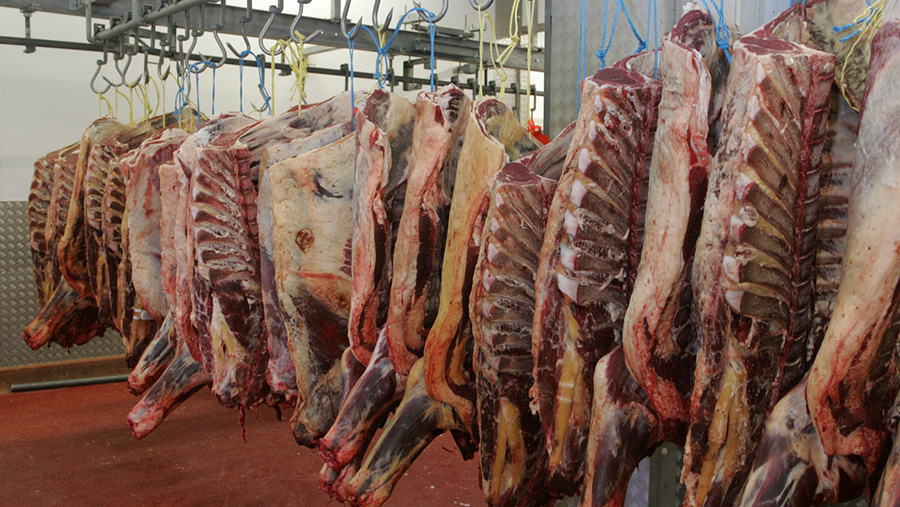Beef slaughtering ‘monopoly’ costing farmers money
 © Tim Scrivener
© Tim Scrivener Beef farmers are suffering from a lack of competition, which partly explains this year’s grading frustration, MPs have been warned.
Farming leaders told the House of Commons environment, food and rural affairs (Efra) committee the concentration of slaughtering in the hands of a few large, mainly Irish-owned abattoirs was hurting producers.
National Beef Association (NBA) chief executive Chris Mallon said farmers were afraid to speak out publicly, or challenge animal grades.
See also: £15m wiped off value of prime cattle market
“Monopoly is a strong word, but to a farmer that’s what it feels like,” he said. “Your choices are so limited.
“The reality is I know for sure that in certain areas of the country, [processors] will not be telling [farmers] the price until they have all had the chat. The price is not going to be the same, [but] we are talking about pennies of difference.”
NFU beef group chairman Steve Conisbee said a big plant near where he farmed in Surrey was able to pay 5p/kg less on its base price as the processor knew it would cost a farmer much more to haul the animal to another abattoir further away.
He added that larger beef finishers especially were worried about voicing concerns for fear of losing their “sweetheart deals” with individual buyers, which often meant dodging the heavy deductions on the pricing grids.
“There is not true competition for our animals,” Mr Conisbee said.
“Farmers are all scared… that if it became public knowledge they get a little bit extra, they would be penalised and not have access to their market.”
Beef payment grids
MPs were seeking evidence on the beef payment grids introduced last winter by several large processors, which included harsher penalties for heavy animals.
The tougher deductions were knocking off an extra 10% from the price farmers were being paid compared with last year, on top of the base price fall, Mr Conisbee added.
Dairy-bred animals had lost £90-£150 a head, while beef animals were worth £60 a head less, according to the NBA.
An AHDB study found 6-7% of the drop in beef values in 2016 was due to changes in the grids.
The rationale behind the grid changes also came under attack in the session, especially the weight limits, which are starting to penalise beasts weighing more than 380-400kg.
“[Processors are] encouraging people to go to the average rather than encouraging them to get better,” the NBA’s Mr Mallon said. “Farmers who have, for decades, improved their animals, are now being penalised for what they have spent their lifetime doing.”
Possible remedies
The committee also asked those giving evidence, which also included AHDB head of global supply chain development Phil Hadley, about possible remedies.
One was the extension of the beef sector voluntary code, drawn up after the market crash of mid-2014. It includes the commitment to give at least 12 weeks’ notice of changes to abattoir terms and conditions.
The NFU’s Mr Conisbee said the code should be made mandatory, while Mr Mallon said there needed to be a form of enforcement, like the Groceries Code Ajudicator.
Committee chairman Neil Parish also asked the farmer representatives to consider a broad range of possibilities once the UK left the EU and had the chance to develop its own agricultural policy. This included an overhaul of the Europ classification system, used across the Continent since the 1970, and the encouragement of long-term, direct contracts between beef producers and retailers.
